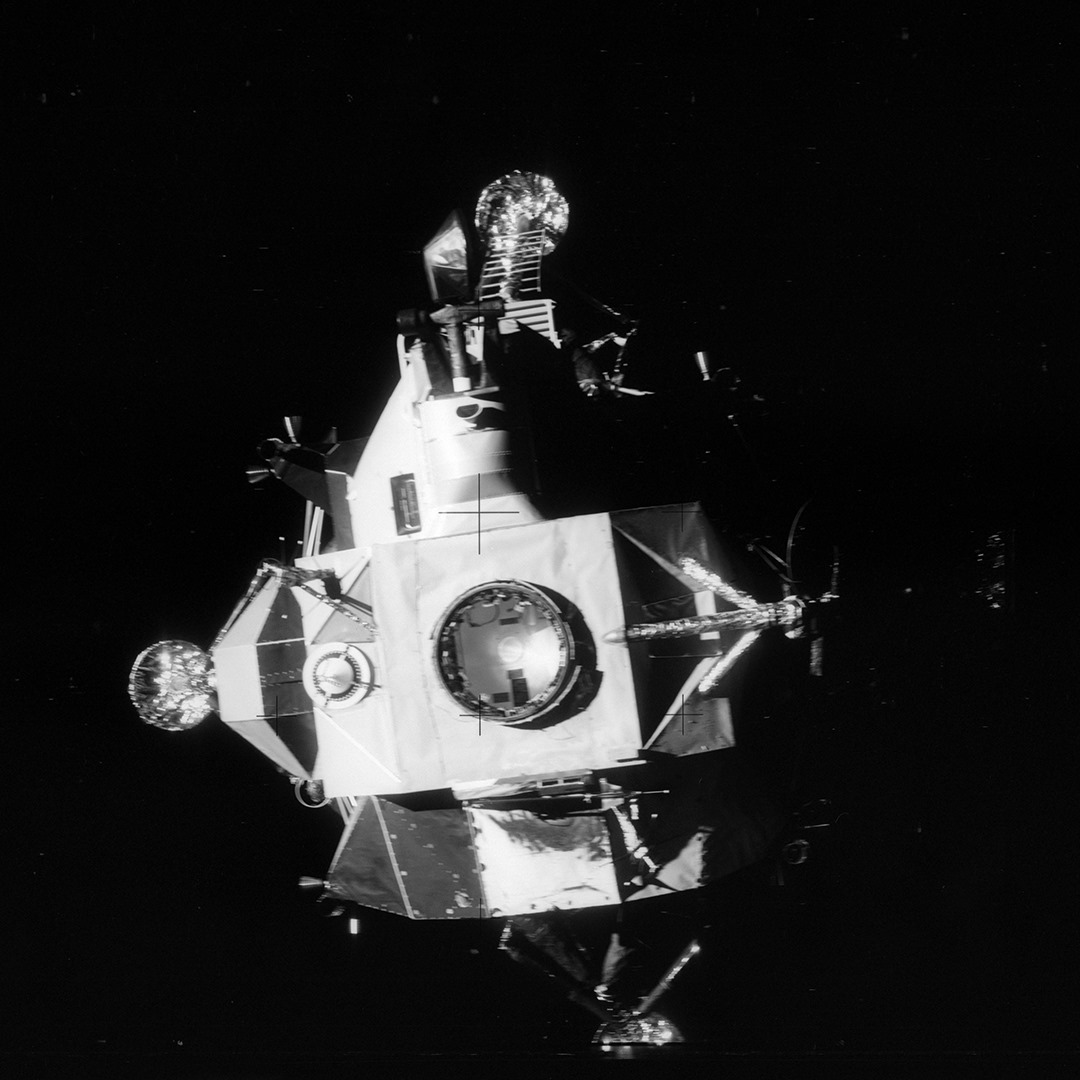
Apollo 13: Celebrating Splashdown!
In the 1st picture, NASA notes that Haise is ascending in a "Billy Pugh" net to the Navy recovery helicopter, while Lovell and Swigert wait in the life raft. The 2nd picture shows a joyous celebration inside the MOCR in Houston, Texas. 1/10
In the 1st picture, NASA notes that Haise is ascending in a "Billy Pugh" net to the Navy recovery helicopter, while Lovell and Swigert wait in the life raft. The 2nd picture shows a joyous celebration inside the MOCR in Houston, Texas. 1/10

Gene Kranz is celebrating in the foreground, with Deke Slayton and others in the background.
The crew and flight controllers had earned this celebration. Apollo 13's mission ended with one final hair raising event. 2/10
The crew and flight controllers had earned this celebration. Apollo 13's mission ended with one final hair raising event. 2/10

All spacecraft reentering Earth's atmosphere experience a blackout period, where the spacecraft is out of contact with mission control. Odyssey took longer than normal to emerge from the radio blackout caused by the ionization of the atmosphere around the spacecraft. 3/10
Gene Kranz shares the drama of reentry in his book "Failure Is Not an Option." He described reentry as irreversible, "As the spacecraft and crew went through the final braking in the lowest part of the atmosphere, the heat was intense, preventing communications. 4/10
The aerodynamic braking slowed the command module from five miles a second to less than 100 miles per hour when the chutes opened. The glow of ionized atmosphere surrounded the crew in brilliant fire-orange as the temperatures soared outside the spacecraft." 5/10
Odyssey and her crew experienced a longer than anticipated blackout period, but communications were regained, and the crew made a successful splashdown in the Pacific Ocean. 6/10
The final picture in today's post shows the Apollo 13 astronauts as they stepped aboard the USS Iwo Jima, triumphant heroes, home from an incredible mission to the Moon. From left to right, Fred Haise, Jim Lovell, and Jack Swigert. 7/10 

The dedication of the teams in the MOCR and across universities, contractor facilities, and the astronauts ensured a successful mission. 8/10
Even though Apollo 13 didn't meet its lunar landing objective, the mission became to be known as the "successful failure" because it showed humans could overcome the challenges and dangers of spaceflight.
#Apollo #Apollo13 Image Credit: NASA 9/10
#Apollo #Apollo13 Image Credit: NASA 9/10
Quote- Gene Kranz, "Failure Is Not an Option: Mission Control to Apollo 13 and Beyond" 10/10
• • •
Missing some Tweet in this thread? You can try to
force a refresh











